Find Balance During Menopause with Nutrition and Lifestyle! {Health & Wellness | Women’s Health | Hormones}
Reduce Menopausal Symptoms by Balancing Your Hormones with Lifestyle and Nutrition
Subscribe to my YouTube Channel for more healthy recipes, lifestyle tips and more!
Affiliate Disclosure & Privacy Policy (please review our complete policy here): we use affiliate links and analytics on our website, social media posts and newsletter which utilize cookies placed on your browser to track sales activity. This post is NOT sponsored but contains affiliate links. These statements have not been evaluated by the FDA and should not be considered medical advice or treatment. Please consult your personal health provider before making any changes to your diet or lifestyle.
Hormones are chemical messengers that are released by different glands and travel through the bloodstream to influence organs and processes all over the body. The endocrine system is made up of glands such as the thyroid, adrenals, pituitary, ovaries, testes and pancreas which work together to control the levels of different hormones and help the body function and maintain balance.
Each person has a specific hormonal milieu within her body which influences mood, digestion, weight, energy and overall health. Some common hormones include:
- Sex hormones, like estrogen, progesterone and testosterone
- Adrenal stress hormones like cortisol and epinephrine
- Hormones which influence your blood sugar and fat storage like insulin and leptin
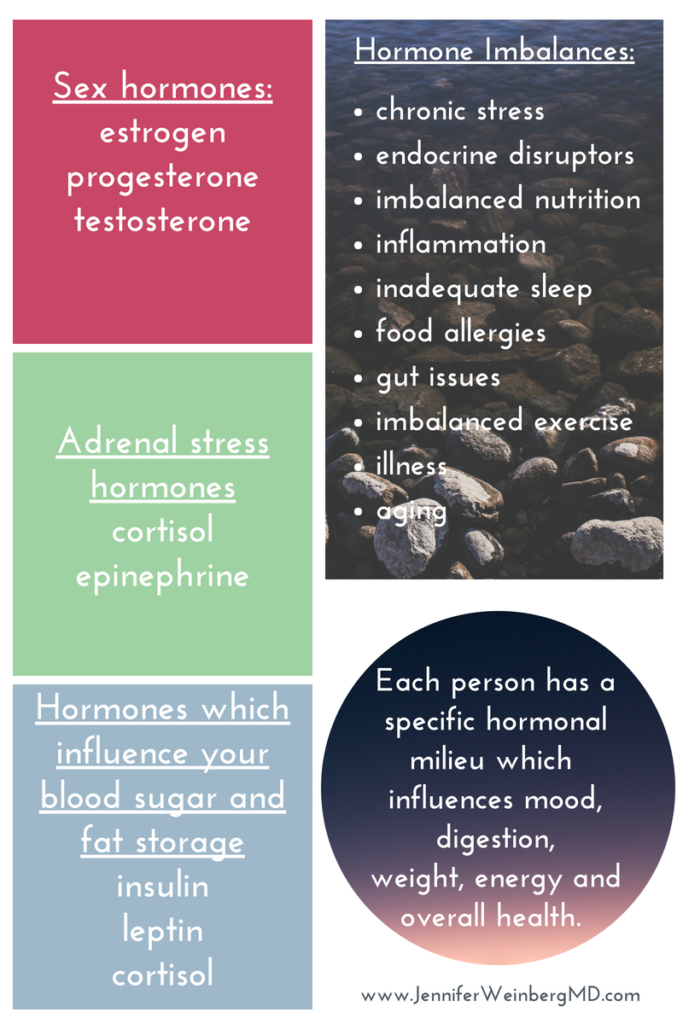
Many factors influence women’s hormone balance across the lifespan. Hormone imbalances can result from:
- more intense or more persistent levels of stress,
- exposure to hormonal disruptors in the environment from things like certain personal care products, cigarette smoke, excessive alcohol and cleaning supplies,
- imbalanced nutrition,
- high levels of inflammation,
- inadequate or interrupted sleep,
- food allergies and gut issues,
- an imbalance in the type and intensity of exercise and movement,
- and illness or aging of the body.
Imbalances in hormones, especially the sex hormones estrogen, progesterone and testosterone, are significant contributors to many of the symptoms that women commonly experience at menopause.

Women’s Hormone Balance During Menopause
Peri-menopause and menopause are normal biological events in a woman’s life. During this period, hormonal shifts occur and menstruation and fertility begin to decline and eventually end.
Menopause is defined as a lack of a menstrual period for 12 months or more in a woman who is over the age of 40. The average age of menopause onset in the US is 51 years, but perimenopausal symptoms can occur anywhere from around 35 to 55 years of age and vary from woman to woman.
During menopause, levels of hormones which influence female sexual characteristics and functions, such as the menstrual cycle and preparing the body for pregnancy, begin to change. Alterations occur in the levels of hormones such as:
- the major female gonadal sex steroid hormones estrogen and progesterone;
- androgens like testosterone;
- hormones released from the hypothalamus in the brain which influence reproductive and sexual traits and functions including luteinizing hormone(LH), follicle-stimulating hormone (FSH) and gonadotropin-releasing hormone.
Since these hormones interact with many other hormone and neuroendocrine systems in the body in a complicated symphony, menopause is a complex biological process and can vary for each woman.
As the levels of these hormones fluctuate and sex hormone levels begin to decline, women can experience a variety of symptoms including:
- menstrual irregularities such as changes in the timing, spacing and flow rate of periods
- hot flashes and night sweats
- weight gain
- changes in fat distribution including increased abdominal fat
- decreased libido
- vaginal dryness
- insomnia and changes in sleep quality
- hair loss or abnormal hair growth
- mood swings, irritability and/or behavior changes
- breast changes
- memory issues
and more.
Natural Hormonal Balance During Menopause with Whole Foods
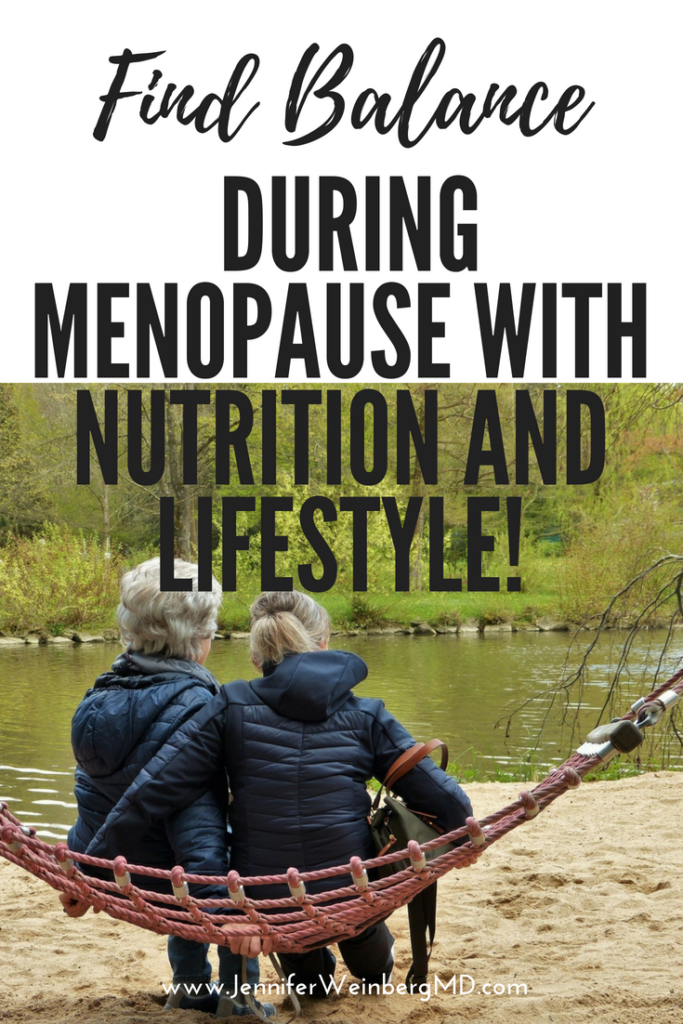
While the hormonal shifts in menopause are a normal part of a woman’s life, there are some strategies that can help reduce distressing symptoms by keeping other aspects of your lifestyle balanced. Many aspects of your lifestyle can influence the balance of your hormones and dietary choices are especially impactful for managing menopausal symptoms.
Swap Out Refined Carbohydrates
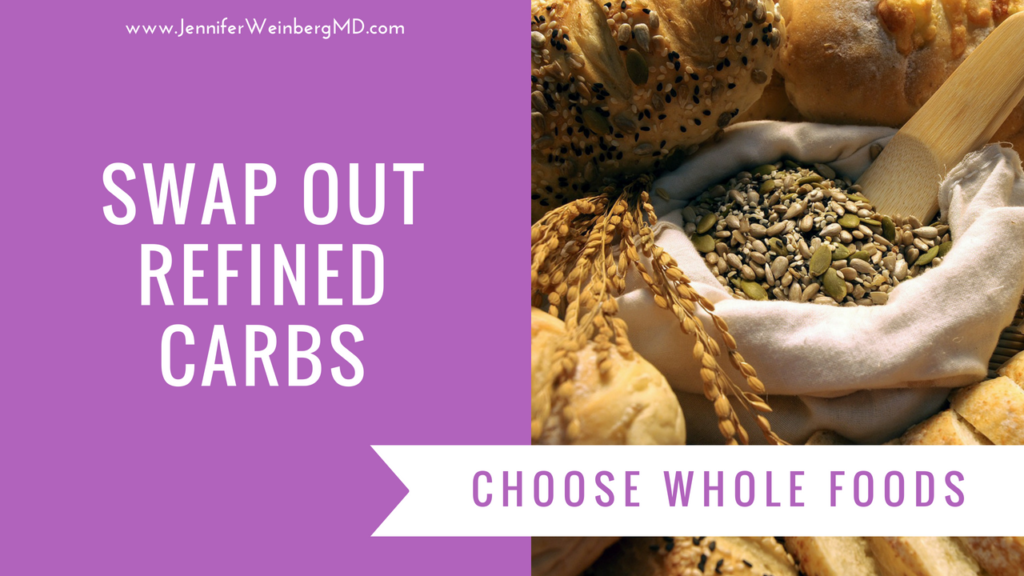
The foods you eat have an important influence on hormonal balance. Diets high in refined carbohydrates, artificial additives, allergens and other inflammatory components can throw off the delicate balance of female hormones and intensify menopausal symptoms.
For example, excess processed sugars and refined carbohydrates can trigger elevated insulin levels and lead to insulin resistance, metabolic dysfunction and weight gain over time. Insulin resistance can further provoke increased androgen synthesis at the expense of decreased estrogen production, contributing to exacerbated menopausal symptoms.
- Focus on consuming enough anti-inflammatory, hormone-supporting whole foods.
- Cut out irritating and artificially-altered foods, refined sugars and overly processed carbohydrates which contribute to inflammation and hormone imbalance.
Embrace Healthy Fats
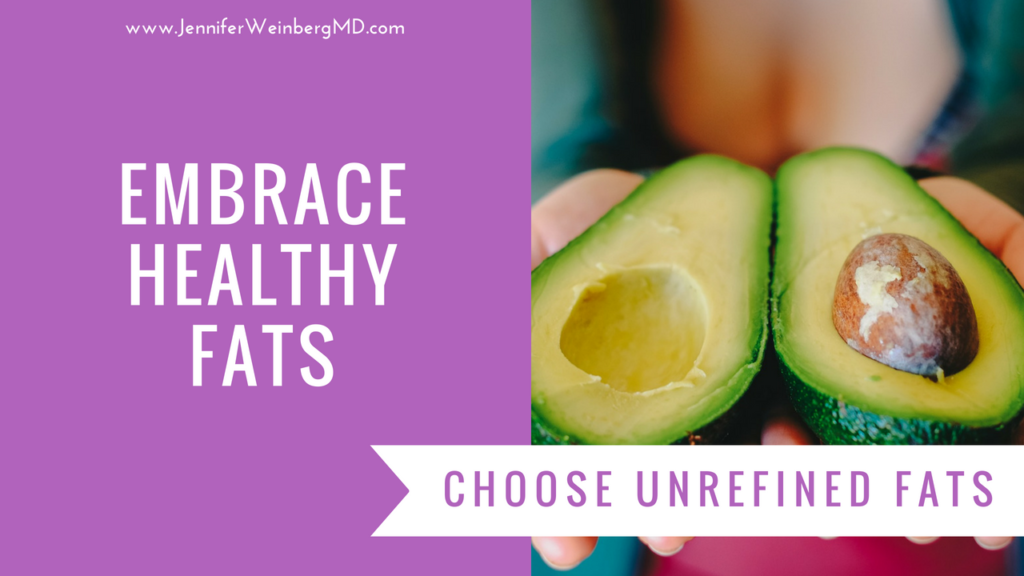
Cholesterol and essential fatty acids are key building blocks of many hormones. Therefore, eating a variety of whole foods which provide healthy fatty acids is necessary to keep hormones in balance and inflammation at bay.
Embracing moderate amounts of healthy fats can also boost metabolism and promote a balanced weight. Omega-3 fats are especially effective at facilitating balanced hormone production and may help alleviate menopausal symptoms, cardiovascular complications and postmenopausal osteoporosis.
- Replace refined seed and vegetable oils like canola, corn, cottonseed, soybean and peanut oil which are higher in omega-6 fatty acids with satisfying, organic fats such as organic unrefined coconut oil, avocados, organic coconut butter, organic ghee, olives and natural sources of omega-3 fatty acids like wild-caught salmon and walnuts.
Cultivate a Healthy Microbiome
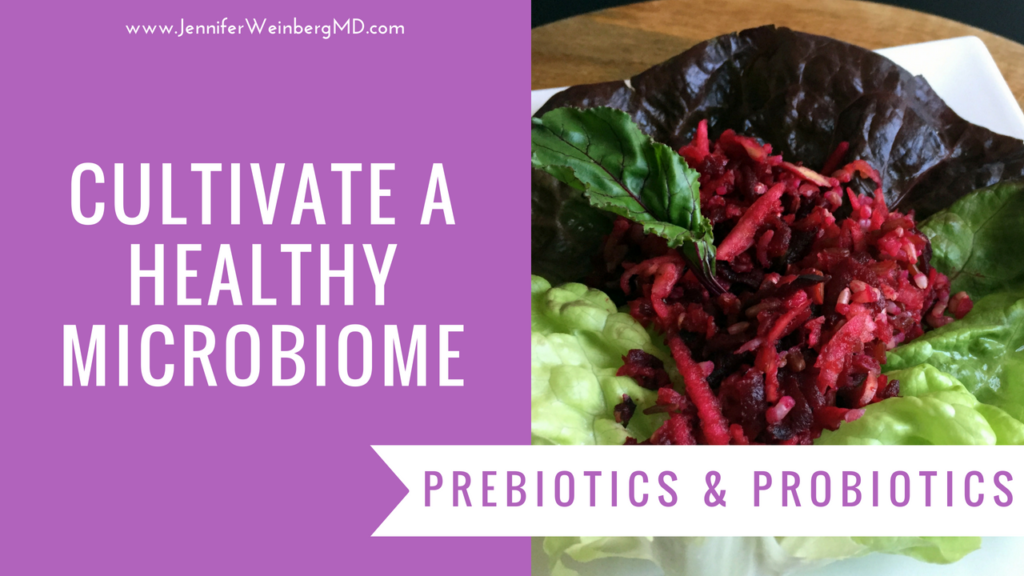
Emerging science shows that your gut bacteria play so many important roles in regulating health. Certain bacterial species in the gut, known as the estrobolome, produce essential enzymes which help metabolize and keep estrogen levels balanced. Therefore, a healthy gut is essential for hormonal balance and modulation of the risk of many diseases.
Given the importance of your gut bacteria, a diverse, whole-foods-based diet is crucial to keeping your microbiome healthy and your hormones in balance. Studies show that the gut rapidly responds to changes in diet, so you can begin to influence your microbiome, and therefore your hormones, with your next meal.
- Incorporate prebiotic foods like inulin and Jerusalem artichokes which provide food for the gut bacteria and support a healthy microbiome.
- To rebalance and keep gut bacteria diverse, enjoy probiotic-rich foods like kimchi, kefir and raw, unpasteurized sauerkraut.
- Incorporate high-fiber foods like nuts, seeds, legumes, beans and a variety of vegetables into your diet. Adequate fiber intake is associated with less weight gain, healthier cholesterol levels, reduced constipation and more balanced levels of estrogen.
- Cruciferous vegetables, including broccoli, cauliflower, cabbage and kale, and other leafy greens are also helpful in regulating beneficial gut bacteria, supplying fiber to keep the gut healthy and supporting healthy detoxification of hormones.
While hormonal changes are a normal part of menopause, these lifestyle habits can help you minimize and cope with symptoms and bring your body back into balance!
How do you keep your hormones balanced?
Which of these lifestyle habits do you embrace?
I would love to have you in my Insider’s Community! Join for free to subscribe to my email newsletter and receive your BONUS of FREE Chapters from The Whole Cure: 52 Essential Prescriptions to Overcome Overwhelm, Reclaim Balance and Reconnect with a Life You Love! You can pick up a full paperback or Kindle copy on Amazon (affiliate link) for a wealth of insights, exercises and complete toolkit to help you uncover your true passions, authentic purpose and calm confidence as well!
To keep building your healthy lifestyle and best self through everyday habits, take the next step today to commit to a life you truly love and feel fully alive!
-
Pick up a copy of The Whole Cure (affiliate link) to build resilience and manage stress in a way that makes life flow with greater ease and joy!
-
Access guided relaxation exercises utilizing the power of the breath and mind here.
-
Join my next online group Whole Cure Lifestyle Transformation Programs to build more powerful coping strategies and skills for meaningful stress management and a calmer life! Contact me to form your own guided online group or register for the next scheduled online program!
Medical Disclaimer: Information provided in this post and related resources are for informational purposes only. Jennifer Weinberg is not providing medical advice, diagnosis or treatment information. The information is NOT intended as a substitute for the advice provided by your physician or other healthcare professional. Every body is unique so be sure to check with your healthcare professional before making any dietary or lifestyle changes taking any medication or nutritional supplement or using any treatment for a health issue. Do not use this information provided for diagnosing or treating a health problem or disease. If you suspect you have a medical problem please contact your healthcare provider promptly and do not disregard professional medical advice based on anything on this website. This website and related resources are not intended to diagnose, treat, cure or prevent disease and do not create a doctor-patient relationship between you and Jennifer Weinberg. These statements have not been evaluated by the FDA. These products are not intended to diagnose, treat, cure, or prevent any disease.
This post was shared with: Home Matters Link Party
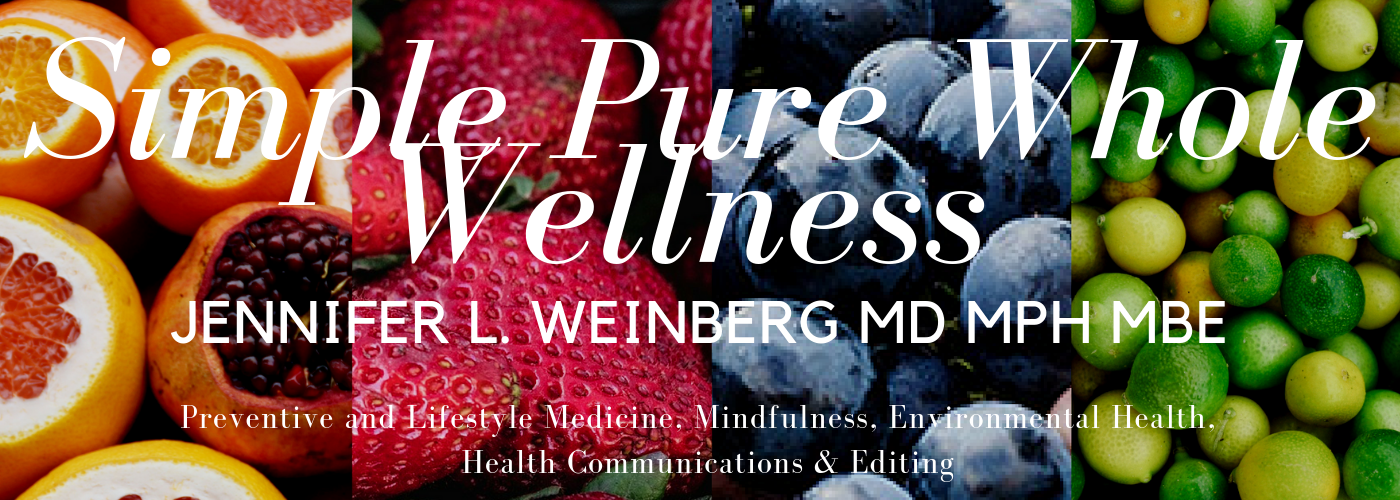

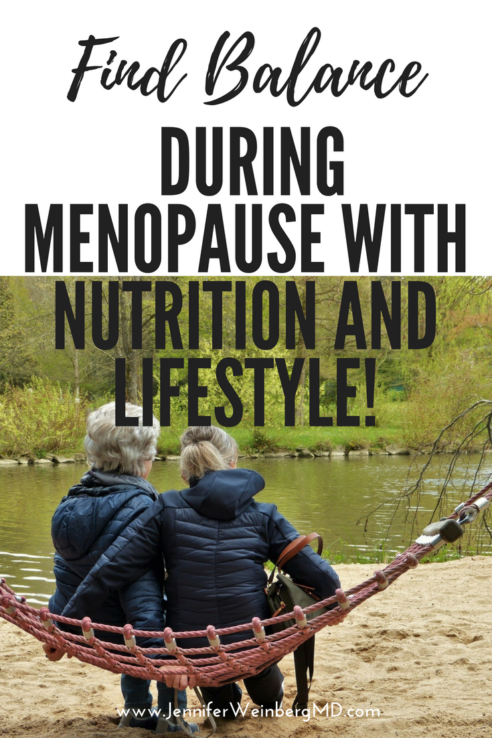

Comments
Mother of 3
Thanks so much for all this information! #homemattersparty Pinned.
Dr. Jennifer L. Weinberg, MD, MPH, MBE
Thank you for stopping by and sharing Joanne! I hope you have a wonderful weekend.